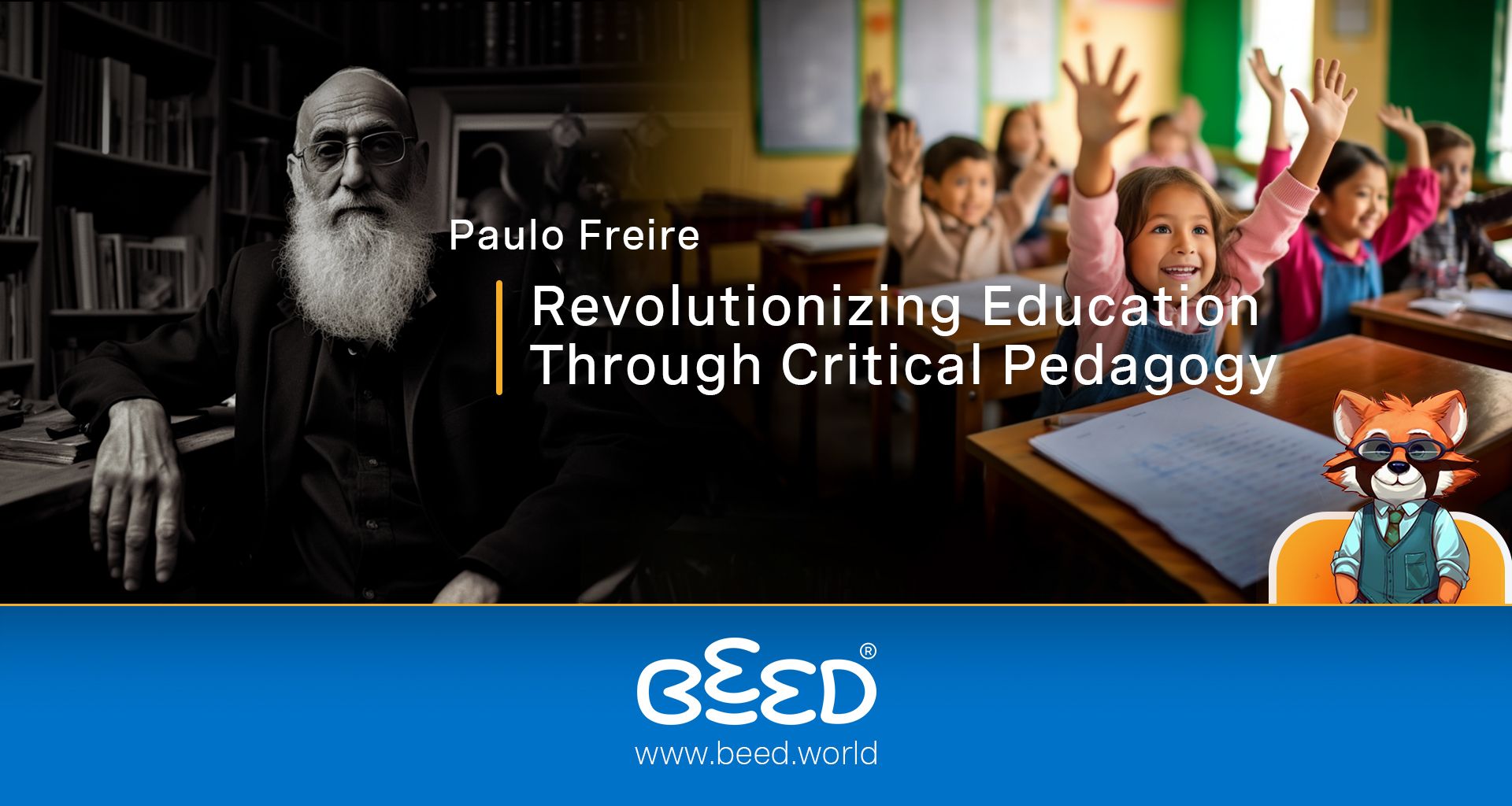Paulo Freire - Revolutionizing Education Through Critical Pedagogy

Paulo Freire, a visionary educator and philosopher, revolutionised education by advocating for a "critical pedagogy" that empowers learners to be active participants in their own education and agents of social change.
His ideas resonate deeply with BeED's mission and platform, making BeED a powerful tool for realising Freire's vision in the digital age.
Freire's Core Principles:
Education as a dialogue: Freire saw learning as a dynamic dialogue, not a transmission of knowledge from teacher to student. He emphasised discussion, problem-posing, and questioning to spark critical thinking and challenge the status quo.
Problematizing the world: Freire believed education shouldn't just "bank" knowledge but encourage learners to "read" their world, analysing its injustices and power dynamics. This fosters a sense of agency and responsibility to create a more equitable society.
Learners as knowledge creators: Freire valued students' lived experiences and encouraged them to co-create knowledge alongside teachers. This fosters ownership of learning and empowers them to become active participants, not passive consumers.
BeED's Alignment with Freirean Principles:
Interactive learning: BeED's platform goes beyond static textbooks, offering interactive lessons, simulations, and discussions that encourage students to engage and participate actively in their learning process.
Real-world application: BeED's content connects knowledge to real-world issues and encourages students to critically analyse their own communities and experiences. This fosters problem-solving skills and a sense of responsibility towards society.
Personalised learning paths: BeED's adaptive learning technology tailors content and pace to individual needs, empowering students to learn at their own pace and building their confidence as self-directed learners.
Community building: BeED fosters collaboration through discussion forums, group projects, and peer feedback mechanisms, creating a learning community where students learn from and with each other.
Freire's Legacy in the Digital Age:
BeED extends Freire's ideas into the digital age, making critical pedagogy accessible to a wider range of learners. Its online platform transcends geographical and socio-economic barriers, reaching students in underserved communities and empowering them to become critical thinkers and agents of change.
By providing tools for interactive learning, real-world application, and personalised learning paths, BeED empowers learners to become active participants in their education and their world. This directly aligns with Freire's vision of education as a liberatory force, equipping individuals with the knowledge and skills to challenge inequalities and create a more just society.
Conclusion:
Paulo Freire's critical pedagogy remains a powerful force in education today. BeED, by embracing and amplifying its core principles through its digital platform, is not only delivering high-quality education but also nurturing generations of critical thinkers and socially responsible citizens. As BeED continues to evolve, Freire's vision will undoubtedly remain a guiding light, ensuring that education serves not only to inform but also to empower and transform.